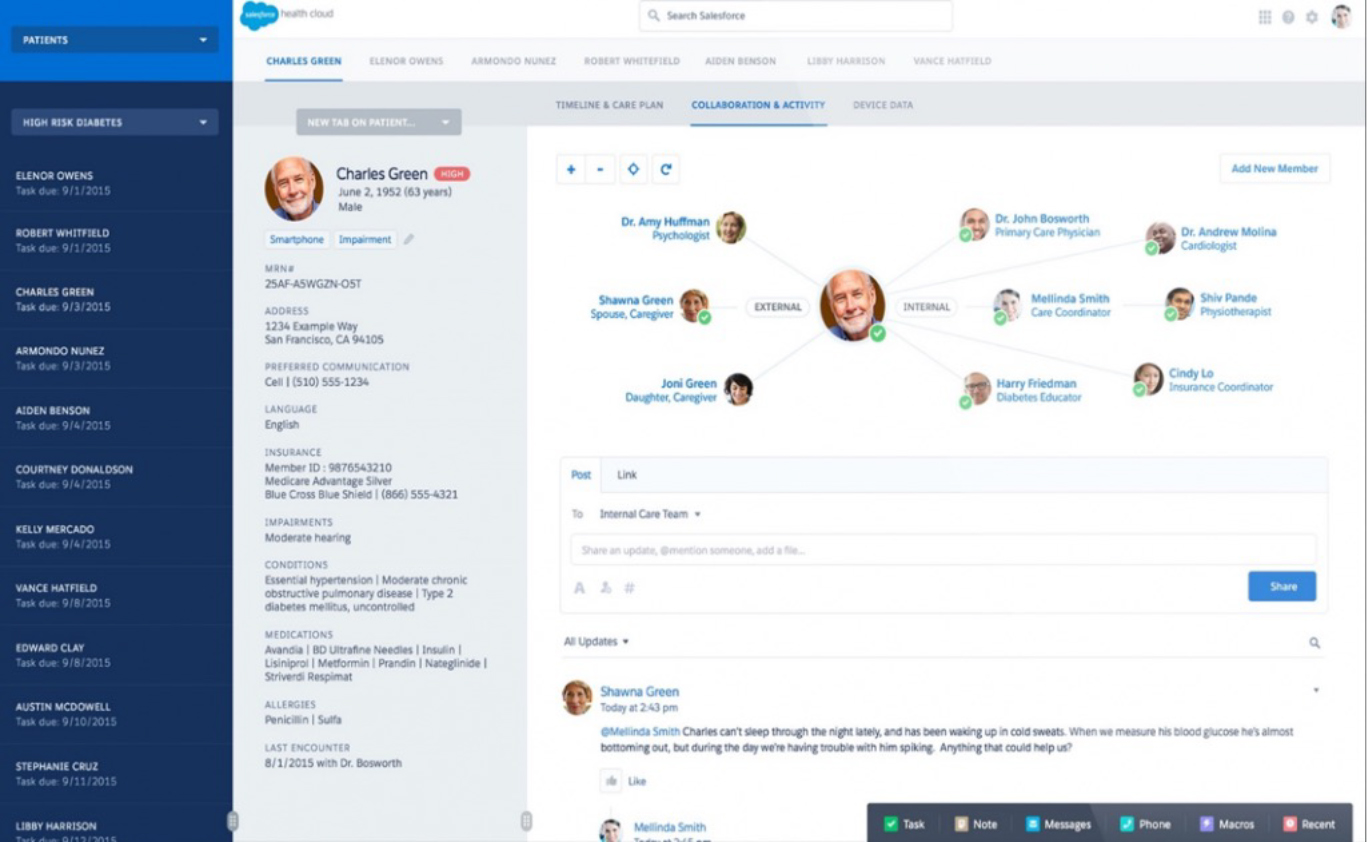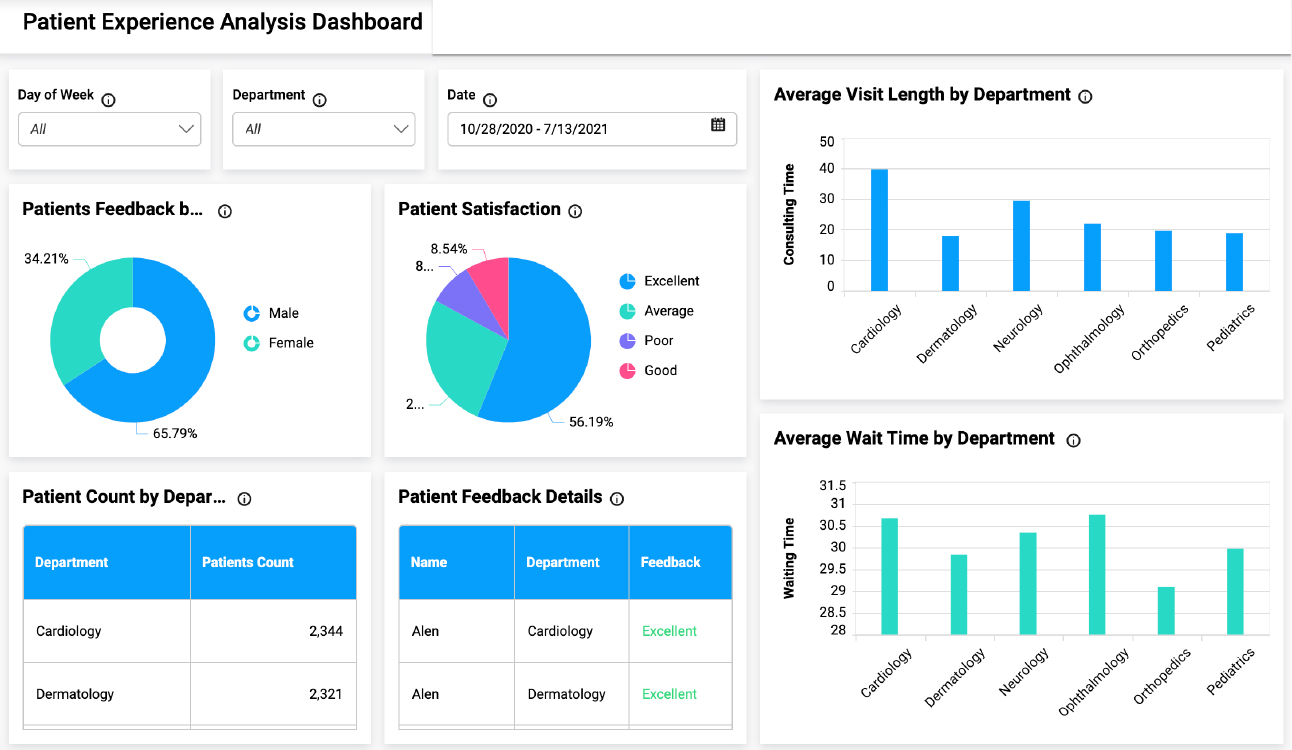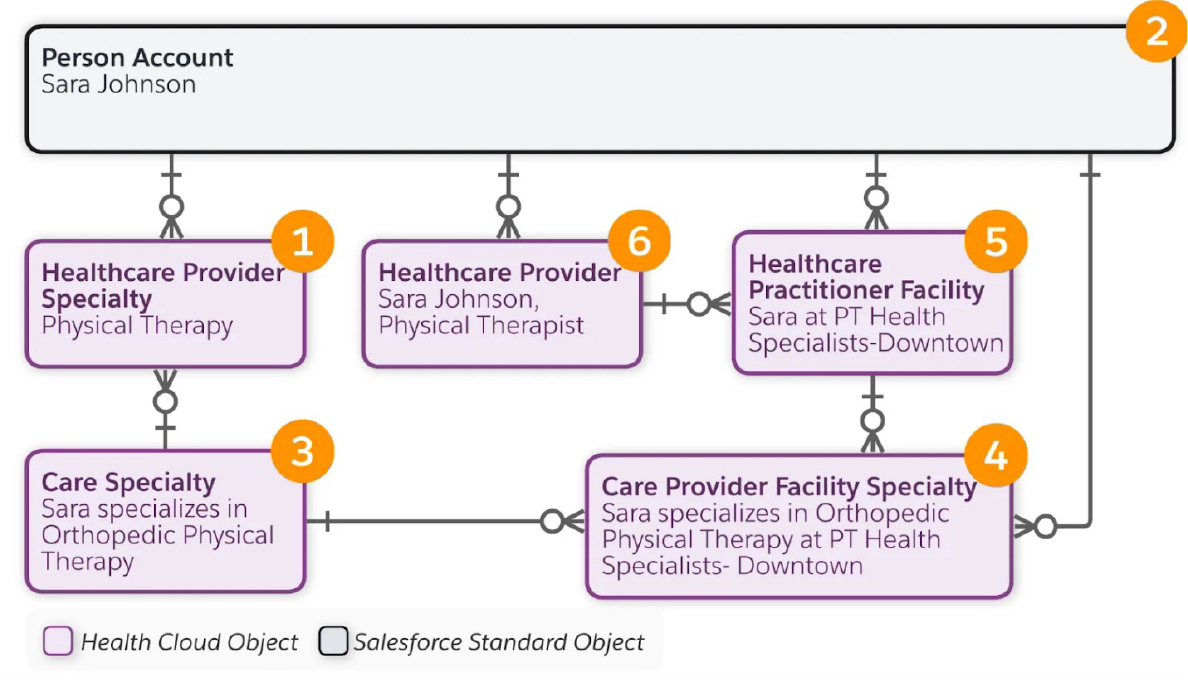In the rapidly growing landscape of healthcare technology, Salesforce stands out as a key player, promising enhanced patient experiences and streamlined operations for providers. It helps manage patient records, automate workflows, consolidate scheduling and more, driving overall efficiency for both patients and providers. However, like any powerful tool, the success of your Salesforce implementation depends on following best practices and avoiding common mistakes. Before we get into the depth of it, let’s ponder upon these questions first.
- How do you address common pitfalls to enhance patient care and streamline administrative processes?
- What steps are you taking to ensure compliance and regulatory adherence in your Salesforce implementation?
Got any thoughts to share or want to learn more?
Let’s discuss.
In this article, we explore the potential roadblocks that healthcare providers often encounter when using Salesforce and talk about ways to navigate through those challenges.
From regulation and compliance oversights to underutilizing industry-specific features, we delve into the nuances of optimizing Salesforce for the unique demands of healthcare organizations. By understanding and addressing these common mistakes, healthcare organizations can ensure a more seamless and effective use of Salesforce to enhance patient care, streamline administrative processes, and reduce cost and operational efficiency.


Smooth Sailing: Avoiding Common Salesforce Mistakes in Healthcare
In this section, we will discuss the key challenges and how to overcome them to ensure smoother integration. From compliance hurdles to maximizing industry-specific features, learn how to optimize your Salesforce usage for improved patient care and streamlined operations. Dive into our insights for a more effective Salesforce transition in the health care sector.
01 - Ignoring Compliance Regulations (HIPPA)
Healthcare organizations are bound by various compliance regulations, such as the Health Insurance Portability and Accountability Act (HIPAA) in the United States. Salesforce configurations must align with these regulations to ensure the secure handling of patient data and compliance with legal requirements.
02 - Non-Compliant Care Process Workflows
Salesforce offers workflow automation tools that streamline various healthcare processes, from appointment scheduling to care coordination. Failing to optimize these workflows can result in inefficiencies and delays in patient care. Verification of benefits, document signs, clinical notes etc.
03 - Inadequate Security Settings
Salesforce provides robust security features, including roles, profiles, and permission sets. Healthcare providers must configure these settings appropriately to control access to sensitive patient information. If this is not done, unauthorized parties may access classified information.
04 - Training Gap/Knowledge
Users need proper training to use Salesforce features effectively. In the healthcare sector, where accurate and efficient data handling is critical, inadequate training can result in users not utilizing the platform to its full potential. This can lead to inefficiencies in patient care and administrative processes.
05 - Data Quality Issues
Healthcare professionals work with enormous volumes of patient data. Incomplete or inaccurate data can lead to medical errors and compromised patient care. Regular data audits and cleansing within Salesforce are essential to maintain data accuracy and integrity. See sample Provider data model below:
06 - Underutilizing Health Cloud Features
Salesforce Health Cloud is designed for healthcare organizations, offering features tailored to the industry's needs. Not leveraging these features, such as patient management tools and care coordination capabilities, means missing opportunities to enhance patient care and collaboration among healthcare providers. Healthcare providers best practices can also be implemented and set up in the sales and service cloud. See sample Provider data model below
07 - Poor Integration with Other Systems
Healthcare providers often use multiple systems for different purposes, such as electronic health records (EHR) and billing systems. Poor integration between these systems and Salesforce can create data silos, hindering a comprehensive view of patient information and impacting decision-making.
08 - Neglecting Mobile Access
In healthcare, where mobility is crucial, neglecting to optimize Salesforce for mobile access limits the effectiveness of healthcare professionals. Salesforce offers mobile solutions that enable users to access patient information securely from mobile devices, enhancing responsiveness and efficiency.
09 - Failure to Monitor Analytics
Salesforce provides robust analytics tools to help healthcare organizations derive valuable insights from their data. Regularly monitoring and analyzing data can lead to informed decision-making, improved patient outcomes, and more efficient healthcare operations.
10 - Not Keeping Up with Updates
Salesforce regularly releases updates and introduces new features to enhance functionality and security. Failing to stay informed about these updates means missing opportunities to leverage the latest advancements, potentially leading to inefficiencies and security vulnerabilities.
Next Steps: Seamless Healthcare Salesforce Transition
In conclusion, navigating the complexities of Salesforce implementation in healthcare requires diligence, foresight, and a steadfast commitment to excellence. By addressing common challenges like increasing cost, training gaps, and inefficient workflow processes, healthcare providers can harness the full potential of Salesforce to enhance patient care and streamline administrative processes.
To embark on this journey with confidence, healthcare organizations may find value in partnering with a Salesforce specialized consultant like Accelirate to drive overall success. With expertise in healthcare workflows, compliance regulations, and patient data management, our industry experts can provide invaluable guidance and support throughout the implementation process.
Working with a Salesforce partner experienced in the life sciences industry and having a record of accomplishment of successful collaborations with healthcare providers, can ensure a seamless transition to Salesforce. To explore this partnership further, submit a request for assistance at https://www.accelirate.com/salesforce-health-assessment/.






